Hate Push-Ups? Try These 6 Alternative Moves
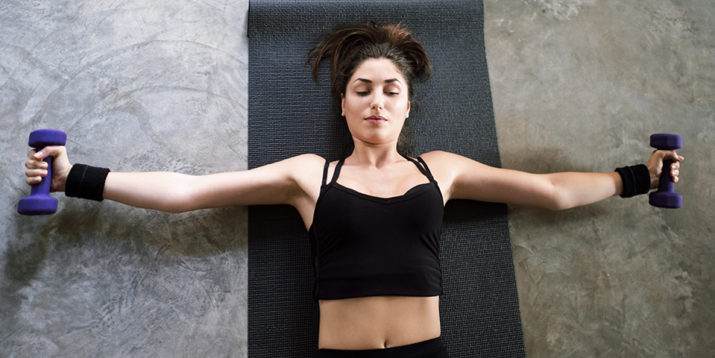
The push-up is one of those classic exercises that seem to appear in almost every workout — and with good reason.
It’s a highly functional movement that works the entire upper body, including the arms, chest, shoulders, core, using just your bodyweight.
Yet, not everyone can (or should) do a standard push-up due to prior injuries, joint pain, or a lack of upper-body strength.
This is where push-up alternatives come in.
“The push-up is a simple movement, but many people lack the upper body strength to perform more than a couple of reps, so they avoid the push-up altogether,” says Trevor Thieme, C.S.C.S. “That’s unfortunate because there are plenty of modifications and push-up alternatives you can do to build up the strength necessary to perform this powerful chest-and-triceps exercise,” he explains.
We spoke with a few fitness experts and compiled a list of their favorite push-up alternatives.
Modify your workout with these push-up alternatives as needed, or use them to gradually work your way up to a standard push-up.
Remember to challenge yourself, but never ignore pain.
“If you experience any discomfort while performing the classic push-up, try a push-up alternative to see if that helps,” says Thieme. “If you feel any pain, stop immediately. If the pain continues, consult your doctor.”
1. Plank
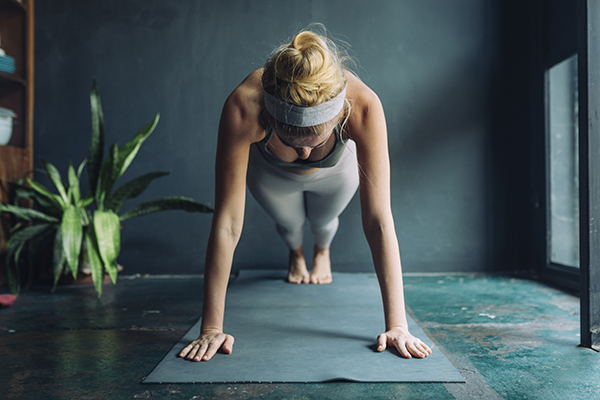
“Many people struggle with push-ups because they simply lack core strength,” says Michael Julom, CPT, founder of This Is Why I’m Fit.
He suggests starting with a 20-second plank and gradually working your way up to a 40-second hold.
“Actively pull the core in and push the hands downwards. This will teach your body to maintain integrity in the push-up position.”
- Assume a push-up position: get on all fours with your feet together (or slightly apart to make it easier) and your body straight from head to heels.
- Make sure your wrists are directly beneath your shoulders.
- Squeeze your glutes and brace your core by drawing your belly button into the spine to lock your body into position.
2. Incline Push-Up
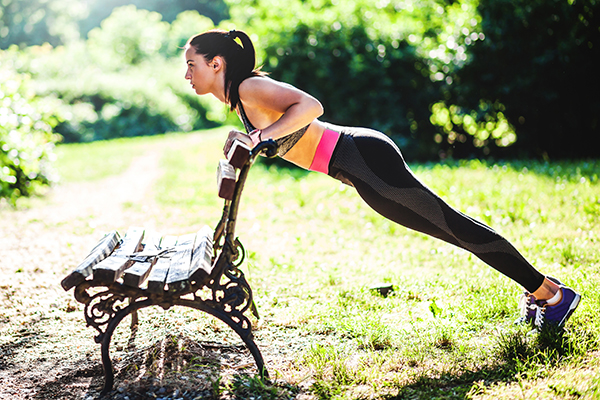
“The best push-up alternative is the incline push-up,” says Thieme.
“The greater the angle of your body to the ground, the easier the exercise will be, so find a surface that’s high enough to allow you to complete eight to 12 reps with good form,” he adds.
As incline push-ups become easier, decrease the angle of your body by placing your hands on a lower surface.
- Place your hands slightly wider than shoulder-width apart on a bench or other stable, elevated surface, and assume a high plank position with your feet together and body straight from head to heels. (You can also place your palms against a wall.)
- Keeping your back flat and core engaged, bend your elbows about 45 degrees away from your body and lower your chest to within a few inches of the bench.
- Pause, and then push yourself back up to the starting position.
3. Kneeling Push-Up
If an elevated surface or wall space isn’t available, you can opt for the kneeling push-up.
“Having the knees on the ground makes performing push-ups easier by decreasing the angle at the shoulders and decreasing the weight you have to push,” explains Seth Means, DC, MSc, a practitioner at Okanagan Integrative Health.
- Start in a high plank position but with your knees on the floor instead of your feet. Your body should be in a line from head to knees.
- Keeping your elbows tucked and core and glutes engaged, bend your elbows back about 45 degrees away from your body to lower your torso until your chest is within a few inches of the floor.
- Pause, and then push yourself back up to the starting position.
4. Dumbbell Bench Press
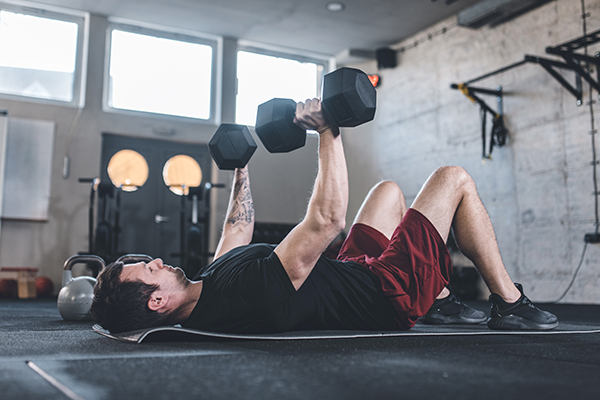
“If you have a bench and dumbbells or a barbell, you can perform the bench press,” says Thieme.
“No bench? No problem — the floor press is also highly effective,” he adds.
- Lie on a flat bench holding a pair of dumbbells directly above your chest with your palms facing forward. Your head, upper back, and butt should touch the bench, and your feet should be flat on the floor. (Alternatively, lie on the floor with your knees bent and the soles of your feet on the floor.)
- Slowly lower the weights to the sides of your chest, keeping your elbows close to your body (not flared).
- Pause, and then push the weights back up to the starting position.
5. Floor Chest Fly
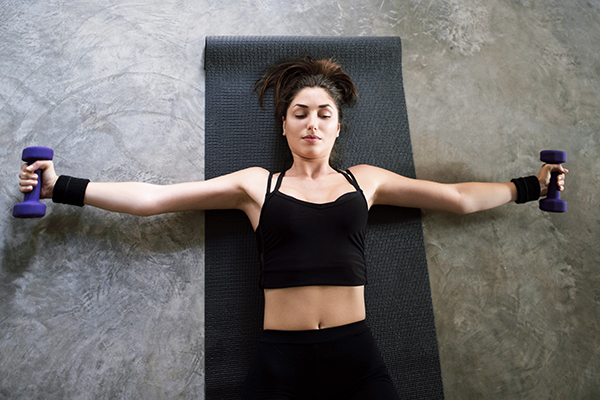
Dr. Lisa Nichole Folden, DPT, owner of Healthy Phit Physical Therapy & Wellness Consultants, recommends the chest fly as a push-up alternative.
It “works the pectorals (chest muscles) as well as the biceps (front of the upper arm), triceps (back of the upper arm), and additional upper back and shoulder muscles,” she says.
- Lie back on the floor with your knees bent and your feet flat, holding a pair of medium-weight dumbbells directly over your chest with your palms facing each other. Make sure to keep a slight bend in your elbows.
- Keeping your arms slightly bent, slowly lower the dumbbells out to the sides until your upper arms lightly touch the floor.
- Pause and return to the starting position.
6. Triceps Dip
Of all the push-up alternatives, triceps dips are among those that offer the most similar benefits, says Julom.
“They move the body through space, working coordination and core strength quite profoundly.”
- Grab the handles of a dipping station and jump or step up to the starting position: feet off the floor, arms straight, ankles crossed. (To make triceps dips easier, you can perform the move with your hands on a sturdy chair or bench behind you and your feet on the floor.)
- Keeping your forearms vertical and elbows tucked in (not flared), allow your torso to lean forward as you lower your body until your elbows are pointed back and form about a 90-degree angle.
- Reverse the movement, returning to the starting position. Repeat for as many reps as possible.
Looking for more expert fitness tips? Head over to BODi and find out how BODi’s at-home workouts, nutrition programs, and online community work together to help you reach your health and fitness goals.
